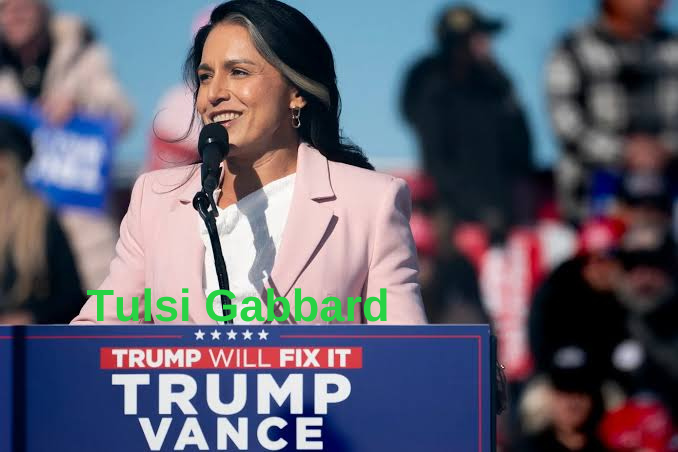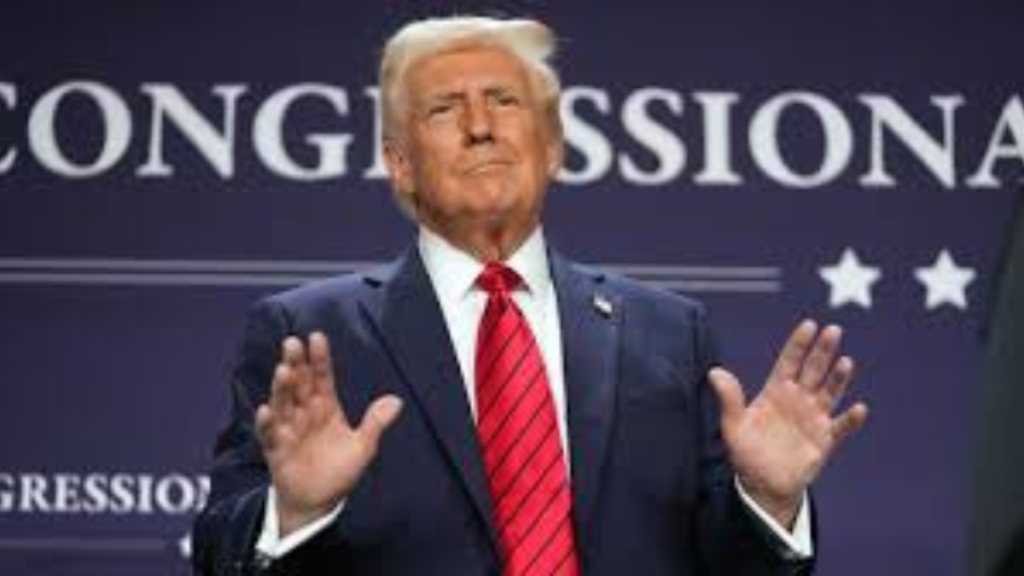With recent speculation that Tulsi Gabbard may be considered by Donald Trump for the role of Director of National Intelligence (DNI), many are discussing the potential impacts of this choice. Known for her strong anti-interventionist views and unique political stances, Gabbard could bring a distinctly unconventional perspective to U.S. intelligence and national security.
A Distinctive Choice for Director of National Intelligence
consideration of Tulsi Gabbard as DNI is notable for several reasons. A former Democrat and current independent, Gabbard is one of the few U.S. politicians whose policy views often defy party lines. Her path from Congress to potentially leading intelligence operations signals a bold departure from traditional appointments to this critical role.
A Brief Look at Tulsi Gabbard Background
Tulsi Gabbard served as the U.S. Representative for Hawaii’s 2nd congressional district from 2013 to 2021. Additionally, she holds a rank in the Hawaii Army National Guard, with deployments in Iraq and Kuwait. These military experiences have informed her strong stance on issues of war and peace, especially her opposition to prolonged military engagements.
From Congress to National Intelligence: Unconventional but Grounded in Experience
While Gabbard does not have direct intelligence agency experience, her background in Congress and her military service provide her with unique insights into foreign policy and national security. She has used these experiences to shape her non-interventionist approach, which could bring a fresh perspective to U.S. intelligence.
Potential Impact of tulsi Gabbard Non-Interventionist Approach
One of Gabbard’s hallmark views is her criticism of U.S. interventionist policies. If appointed, she may lead the ODNI with a focus on defensive strategies rather than proactive interventions, which would mark a significant change from previous DNI approaches.
Shift Toward Diplomatic and Restraint-Based Intelligence
Gabbard’s non-interventionist philosophy could lead to an intelligence strategy that emphasizes diplomacy over conflict. As DNI, she may prioritize intelligence-gathering methods that prevent rather than provoke engagement.
Potential Impacts on U.S. Foreign Intelligence Operations
Under Gabbard’s leadership, U.S. foreign intelligence may experience a strategic shift. With her influence, operations might be recalibrated to align more closely with a restrained approach, potentially reducing actions viewed as provocative or destabilizing on the global stage.
A Focus on Domestic Surveillance Reform and Civil Liberties
Another key area where Gabbard could make an impact is in domestic surveillance. Known for her advocacy of civil liberties, Gabbard has frequently voiced concerns over government overreach in surveillance and privacy matters.
Reforming Domestic Surveillance Practices
If appointed as DNI, Gabbard could push for greater transparency in domestic intelligence operations. This may include reviewing and possibly reforming surveillance practices that many Americans feel infringe on their personal privacy.
Protecting Civil Liberties: A Top Priority for tulsi Gabbard
Gabbard has long been critical of policies she believes undermine individual freedoms, such as the Patriot Act. As DNI, her stance may influence ODNI’s approach, placing a higher emphasis on balancing national security with protecting civil liberties.
What Would Gabbard’s Appointment Mean for Trump’s National Security Strategy?
Trump’s potential appointment of Tulsi Gabbard to DNI could signify a new direction in his approach to national security. Her non-interventionist ideals align with Trump’s “America First” stance, which advocates for reducing U.S. involvement in foreign conflicts.
Gabbard’s Alignment with “America First”
Gabbard’s non-interventionist stance meshes well with Trump’s vision of prioritizing American interests. Her appointment could reinforce a national security strategy focused on minimizing foreign engagements, a move that may resonate with Trump’s base.
Resonating with Independent and Conservative Voters
Gabbard’s unique political journey has won her supporters among independents and even some conservatives. Her anti-establishment perspective may broaden Trump’s appeal among voters who are wary of America’s entanglement in foreign conflicts.
Potential Opposition and Controversy
Choosing Gabbard could also spark debate and opposition. Her positions on issues like Syria and Russia have drawn criticism, with some viewing her stances as controversial. This opposition could come from both political parties, as well as within the intelligence community itself.
Conclusion: Tulsi Gabbard.
Tulsi Gabbard’s potential appointment as Director of National Intelligence represents a break from tradition, potentially bringing a non-interventionist, civil liberties-focused approach to U.S. intelligence. Her unique views on foreign policy and government transparency could reshape intelligence strategy in ways that align with Trump’s vision of limited engagement abroad.
If chosen, Gabbard’s appointment could serve as an opportunity to challenge the status quo in U.S. intelligence policy, possibly prioritizing privacy and restraint over more aggressive strategies. However, her unconventional views may also face pushback, leaving many to wonder whether her leadership would enhance or restrict U.S. intelligence operations on the global stage.
While Gabbard does not have direct intelligence experience, her background in Congress and the military provides her with significant insight into foreign policy and national security. Her military deployments in Iraq and Kuwait have particularly shaped her anti-interventionist views.
Gabbard’s non-interventionist perspective aligns with Trump’s “America First” doctrine. Her approach could strengthen a national security strategy that focuses on reducing U.S. military commitments abroad.
Yes, Gabbard has been vocal about protecting civil liberties and privacy. If appointed, she may advocate for reforms that increase transparency and limit overreach in domestic surveillance practices.
Gabbard’s views on certain foreign policy issues, such as her meeting with Syrian President Bashar al-Assad, have drawn criticism from both parties. Her non-interventionist approach is unconventional in U.S. intelligence circles, which may lead to opposition.




2 Comments